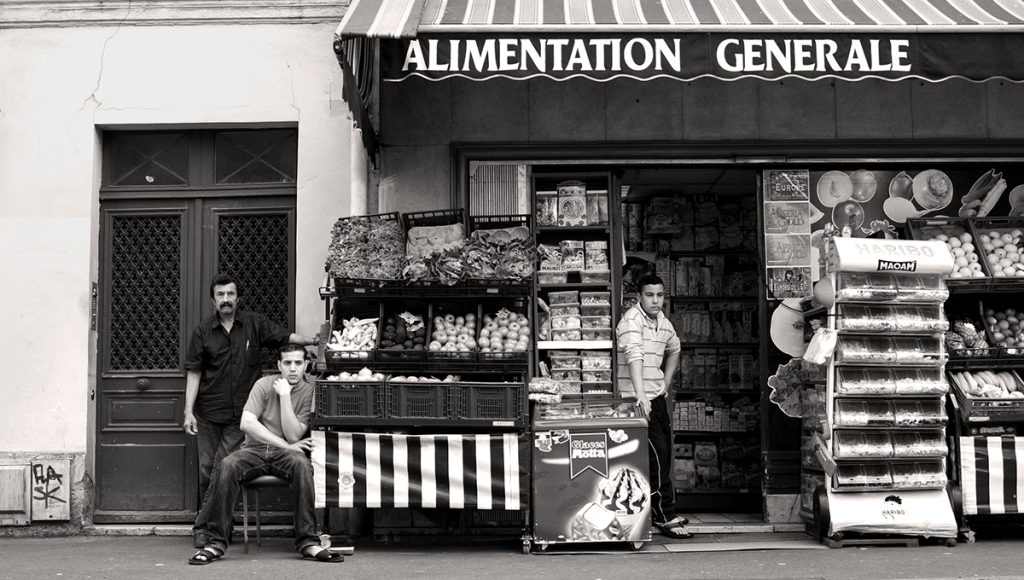
The world may be flat and the monoculture real, but life’s rhythms still vary perceptibly from Paris to New York. My wife likes to point out how it’s typical in Paris for relations with service providers to start in hostility but not to end that way. You sit down at a café and order a dish only to encounter a wall of unpleasantness from the waiter, driving you to respond in kind. Just when you swear to yourself you will never give another euro to his employer, the waiter returns, mumbling something at a third party’s expense—“What a stupid guy that is over there, huh!?”—something obvious that you had also noticed before you were overcome by anger. Suddenly, the two of you are bonding, becoming closer than you ever would have been otherwise.
Across the street from my old apartment, around the corner from where we live now, there’s an alimentation générale run by a 50-ish Tunisian man named Michel. The prices are inflated, but he keeps long hours, bodega-style. In a jam, I used to buy milk there that was always on the threshold of spoiling, stale coffee, and rotten garlic. Sometimes I’d return to the store furious about the milk especially, and he’d fight back. Did I think that fresh milk could last forever? Once we moved closer to another convenience store, I resolved to never to set foot in Michel’s again.
And I haven’t. But I do have to walk my daughter past his shop every morning on the way to school. His door is never closed, and he’s a permanent fixture in the street, always outside no matter the weather. There’s no pleasant way around him but to say bonjour. Which is what we do these days—for two years at this point—with a mutual enthusiasm that seems as genuine as it is unexpected. Now that there is no economic aspect to the interaction, no threat of disappointment, I’ve come to realize my day would be measurably impoverished without this ritual of salvaged—but satisfying—politeness I’ve experienced in no other city than Paris.

